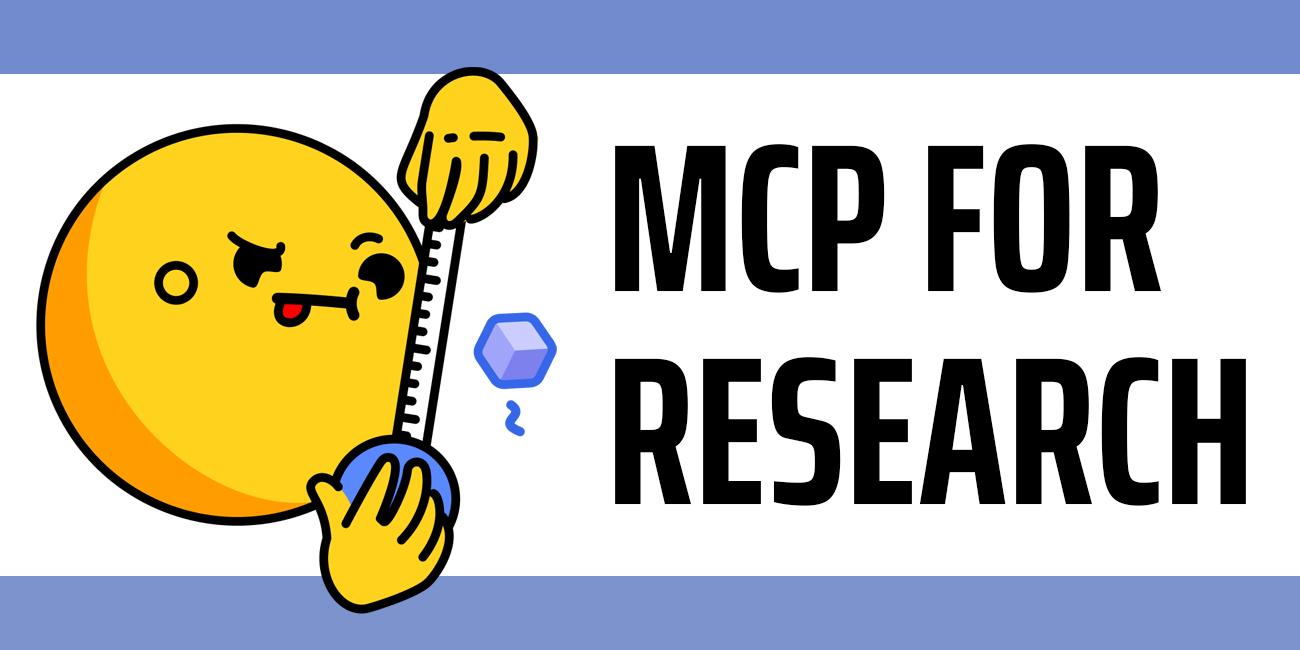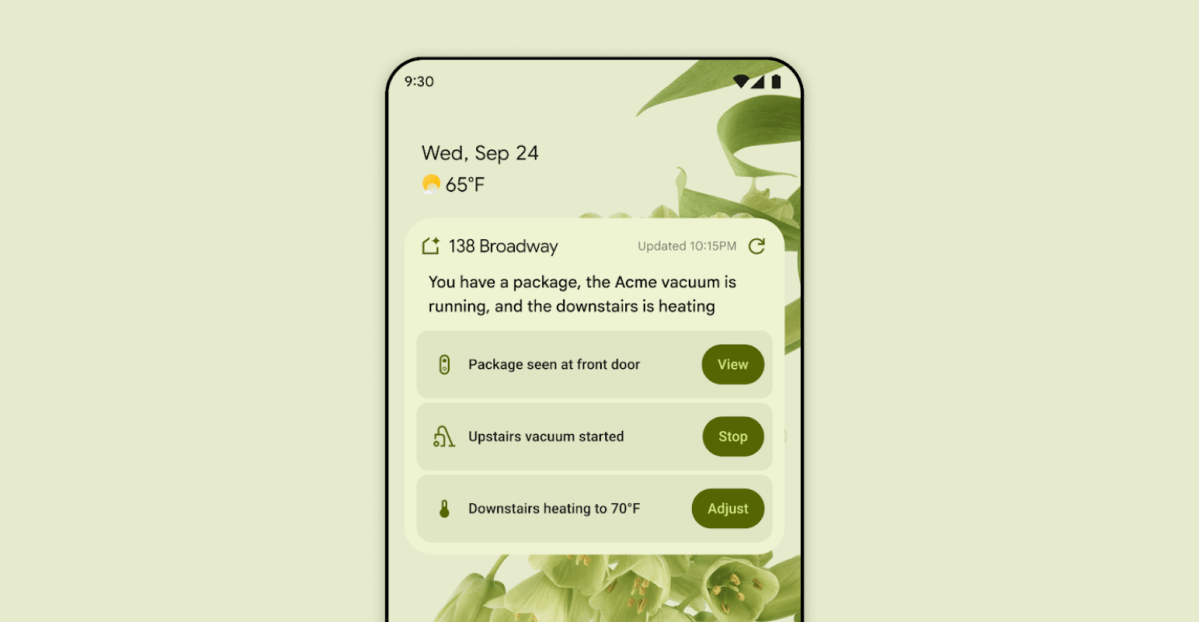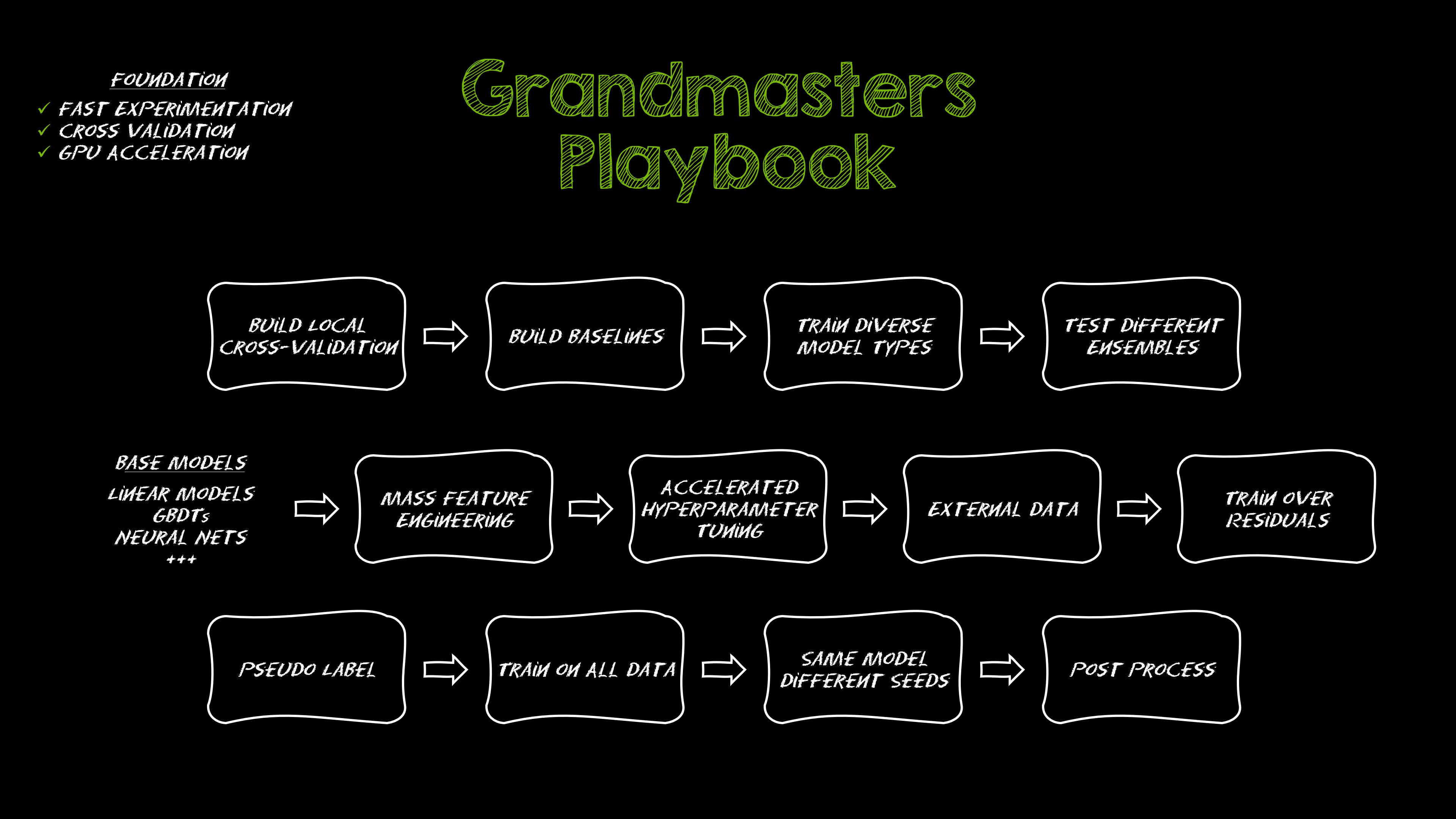
MCP for Research: Connect AI to arXiv, GitHub and Hugging Face Tools
TL;DR
- The Model Context Protocol (MCP) is a standard that lets agentic AI models communicate with external tools and data sources using natural language.
- For research discovery, MCP allows AI to access platforms such as arXiv, GitHub and Hugging Face, automating platform switching and cross-referencing.
- MCP exposes existing Python scripts and tools to AI systems so models can orchestrate multiple tools, reason about results and fill information gaps.
- The Hugging Face MCP server and the MCP Settings page are the recommended ways to add the Research Tracker MCP and use Spaces as MCP tools.
Context and background
Academic research often requires repeated research discovery tasks: finding papers, locating code, and identifying related models and datasets. Researchers typically switch between multiple platforms such as arXiv, GitHub, and Hugging Face and manually piece together connections between papers, implementations and artifacts. This manual approach is practical for small-scale tasks but becomes inefficient when tracking multiple research threads or conducting systematic literature reviews. To reduce repetitive work, researchers commonly script parts of the workflow in Python. Scripts issue web requests, parse responses, extract metadata and organize results. The Research Tracker referenced in the source material demonstrates a systematic research discovery pipeline built from these kinds of scripts. Scripts speed up routine tasks, but they bring operational fragility: they can break when APIs change, hit rate limits, or encounter parsing errors. Without ongoing human oversight, scripts can miss relevant results or produce incomplete information. The Model Context Protocol (MCP) introduces a higher layer of abstraction. Where scripting is a programmatic automation layer, MCP makes those same tools accessible to agentic models via natural language, effectively treating natural language as a programming interface. This framing follows the Software 3.0 analogy presented in the source, where natural language specifications act as the implementation layer for model-driven workflows.
What’s new
The principal development described is that MCP provides a standard interface allowing agentic models to use research tools through natural language requests. In practice, this lets an AI model initiate searches, call scripts, cross-reference results and aggregate metadata across platforms without the researcher manually switching contexts. Key components highlighted in the source content include:
- MCP as a formal standard for model-to-tool communication.
- The ability for AI to orchestrate multiple Python-based tools and fill gaps in returned data by reasoning about results.
- The Hugging Face MCP server as the standard method to expose Hugging Face Spaces as MCP tools.
- A convenient workflow to add the Research Tracker MCP via the Hugging Face MCP Settings page, where client-specific configuration is automatically generated and kept up-to-date. The source also points to an example implementation and related community resources, including a third-party repository for a Google Search MCP server at https://github.com/mixelpixx/Google-Search-MCP-Server.
Why it matters (impact for developers and enterprises)
MCP shifts parts of research discovery from manual and brittle scripting into a model-driven orchestration layer. The core impacts described are:
- Efficiency gains: AI can automate the repetitive, cross-platform tasks involved in discovery — searching papers, locating implementations and comparing datasets — which reduces the need for manual context switching across arXiv, GitHub and Hugging Face.
- Scale: Researchers and teams tracking many threads or conducting systematic reviews can benefit from a model that coordinates multiple tools and maintains context across interactions.
- Leverage existing tooling: MCP makes existing Python scripts and toolchains accessible to models, allowing teams to reuse their automation rather than rewrite it for each model interaction.
- Up-to-date configuration: Using the Hugging Face MCP Settings page generates client-specific configuration that is maintained and current, simplifying integration. At the same time, the source emphasizes that MCP carries many of the same caveats that affect scripted automation: API changes, rate limits and parsing errors remain practical concerns, and human oversight is still necessary to ensure completeness and correctness of results.
Technical details or Implementation
The source frames research discovery as layered abstractions. At each layer, different trade-offs apply:
- Manual: Human-driven searching and cross-referencing. High accuracy for small scopes, low scalability.
- Scripting: Python scripts automate requests, parsing and organization. Faster and repeatable but fragile to API changes and operational limits.
- MCP (model orchestration): Agentic models call exposed tools via natural language, orchestrate multiple scripts, and reason about returned results. This is a higher-level abstraction where natural language acts as the programming interface. A concise comparison table derived from the source content: | Layer | How it works | Strengths | Limitations |---|---:|---|---| | Manual | Human searches across platforms | Accurate for focused tasks | Not scalable, time-consuming |Scripting | Python scripts automate retrieval and parsing | Faster, repeatable | Breaks on API changes, rate limits, parsing errors |MCP | Models call tools via natural language | Orchestrates tools, fills gaps, maintains context | Shares scripting caveats; requires correct tool integration | The source specifically recommends the following implementation path for Hugging Face users:
- Use the Hugging Face MCP server to expose Spaces as MCP tools.
- Configure client-specific settings via the Hugging Face MCP Settings page, which provides automatically generated, up-to-date configuration for integrating the Research Tracker MCP. The Research Tracker itself is presented as a demonstration of systematic research discovery built from scripts; MCP makes that kind of tooling accessible to models so they can drive discovery via natural language.
Key takeaways
- MCP standardizes how agentic models talk to external tools and data, enabling natural language control of research discovery workflows.
- Exposing existing Python scripts and Spaces as MCP tools lets models orchestrate searches, cross-references and metadata aggregation across arXiv, GitHub and Hugging Face.
- Use the Hugging Face MCP server and the MCP Settings page for a straightforward integration path; configuration is client-specific and auto-generated.
- Automation via MCP improves scale and reduces manual context switching but still faces operational issues like API changes, rate limits and parsing errors that require human oversight.
FAQ
-
What is the Model Context Protocol (MCP)?
MCP is a standard that allows agentic models to communicate with external tools and data sources so models can make natural language requests to those tools.
-
How does MCP differ from Python scripts used for research discovery?
Python scripts automate retrieval and parsing programmatically. MCP exposes those scripts and other tools to models, enabling natural language orchestration and additional reasoning on returned results.
-
How can I add the Research Tracker MCP in Hugging Face?
The source recommends adding the Research Tracker MCP through the Hugging Face MCP Settings page and using the Hugging Face MCP server to expose Spaces as MCP tools; the settings page provides client-specific configuration that is automatically generated.
-
What limitations should I expect when using MCP for research discovery?
MCP reduces manual work but inherits practical limits from scripting workflows, including failures when APIs change, rate limits and parsing errors; human oversight remains important.
-
Where can I find example MCP implementations?
The source references community resources including a Google Search MCP server at https://github.com/mixelpixx/Google-Search-MCP-Server.
References
- Article: https://huggingface.co/blog/mcp-for-research
- Example repository: https://github.com/mixelpixx/Google-Search-MCP-Server
More news
First look at the Google Home app powered by Gemini
The Verge reports Google is updating the Google Home app to bring Gemini features, including an Ask Home search bar, a redesigned UI, and Gemini-driven controls for the home.
Shadow Leak shows how ChatGPT agents can exfiltrate Gmail data via prompt injection
Security researchers demonstrated a prompt-injection attack called Shadow Leak that leveraged ChatGPT’s Deep Research to covertly extract data from a Gmail inbox. OpenAI patched the flaw; the case highlights risks of agentic AI.
Predict Extreme Weather in Minutes Without a Supercomputer: Huge Ensembles (HENS)
NVIDIA and Berkeley Lab unveil Huge Ensembles (HENS), an open-source AI tool that forecasts low-likelihood, high-impact weather events using 27,000 years of data, with ready-to-run options.
Scaleway Joins Hugging Face Inference Providers for Serverless, Low-Latency Inference
Scaleway is now a supported Inference Provider on the Hugging Face Hub, enabling serverless inference directly on model pages with JS and Python SDKs. Access popular open-weight models and enjoy scalable, low-latency AI workflows.
Google expands Gemini in Chrome with cross-platform rollout and no membership fee
Gemini AI in Chrome gains access to tabs, history, and Google properties, rolling out to Mac and Windows in the US without a fee, and enabling task automation and Workspace integrations.
Kaggle Grandmasters Playbook: 7 Battle-Tested Techniques for Tabular Data Modeling
A detailed look at seven battle-tested techniques used by Kaggle Grandmasters to solve large tabular datasets fast with GPU acceleration, from diversified baselines to advanced ensembling and pseudo-labeling.





